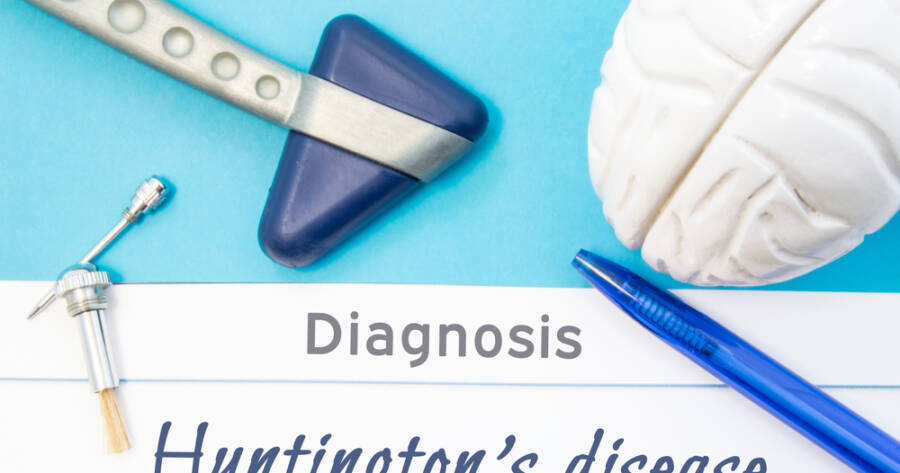Huntington’s Disease is a rare genetic disorder that affects thousands of people worldwide. While there is currently no cure, researchers have made significant strides. To learn more about the innovative new treatments, continue searching online.
This disease progressively damages nerve cells in the brain, causing physical and cognitive deterioration. Thankfully, these new treatments work to alleviate symptoms and potentially slow down its progression.
What is Huntington’s Disease?
Huntington’s Disease is an inherited disorder caused by a mutation in the HTT gene, which leads to the production of a faulty protein called huntingtin. This mutation disrupts the brain’s normal functioning, affecting movement, cognition, and emotional stability.
Individuals who inherit a single mutated copy of the gene will eventually develop the disease, usually in mid-adulthood. Symptoms often include uncontrollable movements, cognitive decline, and emotional changes, making it a profoundly challenging condition.
How is Huntington’s Disease Treated?
While there’s no cure for Huntington’s Disease, several treatments aim to alleviate symptoms and improve the patient’s quality of life. Some therapeutic approaches include:
1. Physical and Occupational Therapy
Physical therapists are skilled in devising exercises that enhance strength, flexibility, balance, and coordination. These exercises are tailored to maintain mobility for as long as possible while minimizing the risk of falls. They also provide guidance on posture improvement and the use of supportive devices.
Occupational therapists, on the other hand, specialize in assisting both patients and caregivers with the utilization of assistive tools that enhance functional abilities. This support encompasses a range of strategies, from installing handrails at home to introducing devices that facilitate daily tasks like bathing, dressing, or eating.
2. Speech Therapy
Speech therapy is a crucial resource for individuals living with Huntington’s Disease, especially as the disease progresses and presents challenges in speech and swallowing. This genetic disorder can severely affect the control of muscles essential for communication and eating.
Speech therapists play a pivotal role in helping patients regain or maintain their ability to speak clearly, or even to communicate through specialized devices, like boards with pictures. Additionally, these therapists can address difficulties related to muscle control for eating and swallowing, ensuring a better quality of life for those facing the complex challenges of Huntington’s Disease.
3. Psychotherapy
Psychotherapy, often referred to as counseling, plays a vital role in helping individuals and their families navigate the emotional challenges and mental health issues that often accompany Huntington’s Disease.
A psychotherapist can offer talk therapy aimed at addressing behavioral issues, developing effective coping strategies, managing expectations throughout the progression of the disease, and fostering better communication among family members.
4. Medications
FDA-approved medications like tetrabenazine and deutetrabenazine effectively manage Huntington’s Disease symptoms, particularly chorea. These drugs don’t impact the disease’s progression but may cause side effects. Antipsychotic options offer alternatives with fewer side effects.
Other medications, including amantadine, levetiracetam, and clonazepam, can help suppress chorea, though side effects may limit their use. For those with associated psychiatric disorders, medications like antidepressants, antipsychotics, and mood stabilizers address specific emotional symptoms.
FDA Approved Treatments
Two FDA-approved medications provide effective treatment for the chorea symptoms associated with Huntington’s disease. These pioneering treatments, Xenazine (tetrabenazine) and Austedo (deutetrabenazine), function as VMAT2 inhibitors and help manage the involuntary movements characteristic of the disease.
Tetrabenazine, the first medication to gain FDA approval, plays a crucial role in reducing the levels of dopamine in the synapse. Meanwhile, Austedo, developed by TEVA Pharmaceuticals, offers similar benefits but has a slower breakdown in the body, potentially leading to less frequent dosing, lower dosage requirements, and fewer side effects.
Promising Medications Awaiting FDA Approval
Several medications are currently in various stages of clinical trials, showing potential to address different aspects of the disease, from its motor symptoms to cognitive and emotional challenges. These promising developments offer hope to individuals and families living with Huntington’s Disease.
- Ingrezza (valbenazine): A once-daily oral capsule focuses on alleviating chorea symptoms by regulating dopamine levels in the brain. Recent studies have shown that Ingrezza brings statistically significant improvements in chorea symptoms within weeks.
- Pridopidine: A twice-daily oral capsule, has also shown promise by activating a protein in the brain and spinal cord, offering benefits related to thinking, behavior, and movement.
- Tominersen: An injectable medication, has made a comeback, with trials focusing on younger adults displaying early Huntington’s Disease symptoms. This therapy targets the root of the condition, aiming to stop the production of harmful huntingtin protein.
- AMT-130: Represents a pioneering approach to gene therapy for Huntington’s Disease, designed to instruct the body to halt the production of mutated huntingtin protein.
- WVE-003: Aims to lower harmful huntingtin. Undergoing small clinical trials in Canada and Europe to assess its safety and effectiveness.
- SAGE-718, ANX-005, and Pepinemab: Offer new possibilities in the treatment of Huntington’s Disease by targeting specific proteins and pathways associated with the condition.
As research continues, these innovative medications bring optimism to individuals and families affected by this challenging disease.
Learn More About Huntington’s Today!
While there’s no cure, the FDA-approved medications Tetrabenazine and Austedo, along with off-label prescriptions and ongoing research, provide a glimmer of hope to those affected by this rare genetic disorder. If you or a loved one is dealing with Huntington’s Disease, continue searching online for more information and be sure to consult a healthcare professional for guidance on the most appropriate treatment options.
For more detailed information on Huntington’s Disease and its treatments, continue your exploration online to stay updated on the latest developments in this field.
